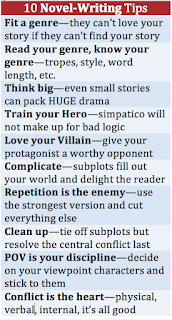“Try to leave out the parts that readers tend to skip.” Elmore Leonard, writing tip #10
That may be surprising if you’ve read the old man’s work. His style is a bit terse. It’s easy to imagine him banging out those short, stabbing sentences, ra-ta-tat style like a machine gun stream of consciousness. But that’s not how writing works.
Before going further, it’s important to define terms. What we’re talking about is the length of your draft. Not the publication length. The published work is an entirely different animal. Quite often, what’s published only vaguely resembles the original draft. Other times, what’s published looks like no editors came to work that day.
So, how long should your draft be? What is enough, what is too much? The answer is tricky.
Conventional wisdom, (and Writer’s Digest) states that the length is dictated by the form. A short story is typically 1500-30,000 words or 6-120 pages. A novella is 30,000 to 50,000 words, (120-200pgs). And a novel is 55K-300K words, (a whole bunch of pages).
Of course all bets are off for non-fiction, as anyone who has ever bought a grad-school, med-school, or law-school textbook can attest to. So, we’ll stick to fiction.
As such, genre plays a part in the count. Hemingway’s For Whom the Bell Tolls, is 471 pages and 170K words. That remains some-what consistent for literary novels with variances for folks like Annie Proulx and David Foster Wallace. Seriously? Nine-hundred fothermucking pages?
Frank Herbert’s science fiction masterpiece Dune originally clocked in around 700 pages. Which was considered too long by sci-fi publishers of the day, masterpiece or not. But today that is about the average for a science-fiction epic.
The average mystery thriller is around 300 pages. Meanwhile Robert B. Parker made a four-decade career writing lean, 200-ish-page detective novels. Donald Westlake did the same thing in crime. No one corrected either that those were novellas opposed to novels.
Recently, I ran my first completed novel (80K words, 320-odd pages) through a development editor. She provided pointed, constructive criticism of my work with detailed notes. I am nothing if not efficient and proactive so I promptly downloaded that critique and then promptly started noodling around with a short story while completely ignoring the notes on my novel.
“A short story is like a kiss in the dark from a stranger.” -Stephen King
What I found is I kept packing more into the short story than was absolutely necessary. The protagonist’s backstory, leading into why we’re “there.” The antagonist’s story, or the resistance to the protag’s objectives. The other protag’s story, or the how to the who/what/why. But that's not the purpose of a short story.
Still I wrote. The alternative, (working on editing notes THAT I PAID MONEY FOR) was too horrifying to contemplate. Yet as I wrap up the short story, I already have ideas of what to cut in order to get to the big dance number, (kidding, as far as you know) sooner. In doing so, I learned something, too.
“The first chapter sells your book. The last chapter sells your next book.” -Mickey Spillane
When I tried to cut superfluous details as I wrote, I only end up adding them back in if not rewriting the entire paragraph or page to expand on those details. But when I write, without consideration of the word count or balancing dialogue to action or exposition to dialogue or prologue to point, I get the story finished much quicker.
Once the story is down on the page, the entire story, I can get to the real work: editing.
Yes, I end up cutting away a lot of the same words, but after I’ve seen them on the page. It’s easy to cut them after I have read them, after I know they are true. The antagonist’s sexual disfunction after cutting off all emotional connection to survive, (and remain sane) four years in a warzone? True. The protagonist’s inant fear of failing his family now that his father, a river of wealth to everyone, has died? True. The other antag’s goal of surviving a game that has changed like a rug pulled from under her feet? True.
Once that’s established, I can cut it from the finished product. I know what’s happening behind the curtain. All the reader needs to see is the spectacle on stage.
Back in 1964, Herbert ran Dune through over 30 publishers. When Chilton picked it up, they said he had to cut the book down to less than 450 pages. So, Herbert broke the last third into another book. As a result, we got Dune at 400-ish pages and Dune Messiah at 250-ish pages.
Few books benefit from added words…
First lesson: while Dune Messiah is an important book that explores themes only hinted at in Dune, DM is also tonally opposite of the first book. If left intact, both in one book, it would’ve been like reading pots and pans crashing. In short, if Herbert had stuck to his guns, the result would’ve been a diminished book, if not a catastrophe.
Secondly, once it is written, it is not ever lost entirely. The ideas broached in Herbert’s original book were still explored in a different format. Readers got six books and a rich science fiction legacy.
The bottom line is you can write and cut it or write it and store it. But you must write it, even if no one ever sees it but you. Even if no one even knows why protag A or antag B does what they do. The writing is the process and there are no shortcuts: you have to write.
Ultimately, the draft should be as long as it needs to be.







